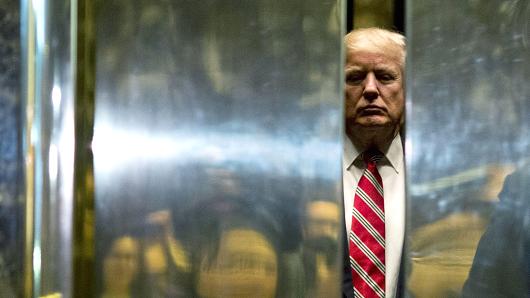“Based on the Tariffs and Trade Barriers long placed on the U.S.,” tweeted President Donald Trump on Saturday, (always a quickly passing denomination), “and it great companies and workers by the European Union, if these Tariffs and Barriers are not soon broken down and removed, we will be placing a 20% Tariff on all of their cars coming into the U.S. Build them here!”
That is a curious appeal as that is exactly what the European carmakers have been doing for some time. The biggest BMW factory in the world is currently based in Spartanburg, South Carolina. It produces up to 450,000 cars every year.
Each and every Mercedes SUV model driving around the world has been made in Tuscaloosa County, Alabama. That factory alone employs 3,700 people and supports more than 10,000 jobs in the region. And it is not only German carmakers – Trump’s most favorite punch bag – that are coming to the U.S. on a large scale.
As recent as three days ago the Swedish giant Volvo opened its brand-new factory in Charleston. The original plan to invest $500 million was promising enough, yet Volvo has doubled up to $1.1 billion and announced that the plant would ultimately employ 3,900 workers. Are these not the “jobs, jobs, jobs” President Trump likes to mention so much? Are they somehow less important, of lesser value? Are they fake jobs?
With Trump’s recent Tweet threatening to put a 20 percent tariff on cars imported to the U.S., the president has come back to one of his favorite topics. “If you go down Fifth Avenue,” he commented to the German tabloid Bild a few months ago, “everyone has a Mercedes-Benz in front of their house, isn’t that the case? How many Chevrolets do you see in Germany? Not very many, maybe none at all… it’s a one-way street.”
The response of the then German Vice Chancellor Siegmar Gabriel was short and apt. Asked by a reporter what he would recommend Trump to reverse this “big imbalance,” he simply said: “To build better cars.”
Another recommendation might have been to lead by example. Yet, that has never been Trump’s strong point. Trump, or rather his ghost-writers, has written many books, and one of them is called Think Like a Billionaire: Everything You Need to Know About Success, Real Estate, and Life. On page 105 Trump talks about his cars: “My favorite car is a Mercedes. I’ve had one for a long time… I also have a Ferrari, a Lamborghini, and a bunch of other cars in different places.”
Surprisingly, no mention of Chevrolets at all. All listed cars are built by an E.U.-based producer. Whether they are still in Trump’s possession is difficult to assess. If he had sold them, though, we would probably know. He has never been too shy in mentioning his good deeds.
However remarkable and amusing, the contents of Trump’s garage – luckily or unluckily – is not the point here. Appealing to his conscience is not either. Even to conceive such an action would seem ludicrous anyway. To persuade American author Dan Brown that Illuminati do not exist would be an easier task.
A more important problem is that the international trade and geopolitics simply do not work the way Trump imagines they do. Taxing European cars surely seems a brilliant idea to any Trump supporter. Yet Jean Claude Juncker, President of the European Commission, announced in March that any action of a similar nature from the American side would prompt a quick retaliation from the E.U. Following a clear enough strategy, Juncker mentioned popular American products originating in the home states of key Republican leaders: Kentucky bourbon or Wisconsin-based Harley-Davidson.
A full-scale trade war between several NATO allies is at stake, something that a few years ago would have seemed a science fiction scenario. All implications of such war are too horrid to think of.
Disclaimer: The views and opinions expressed here are those of the author and do not necessarily reflect the editorial position of The Globe Post.





















